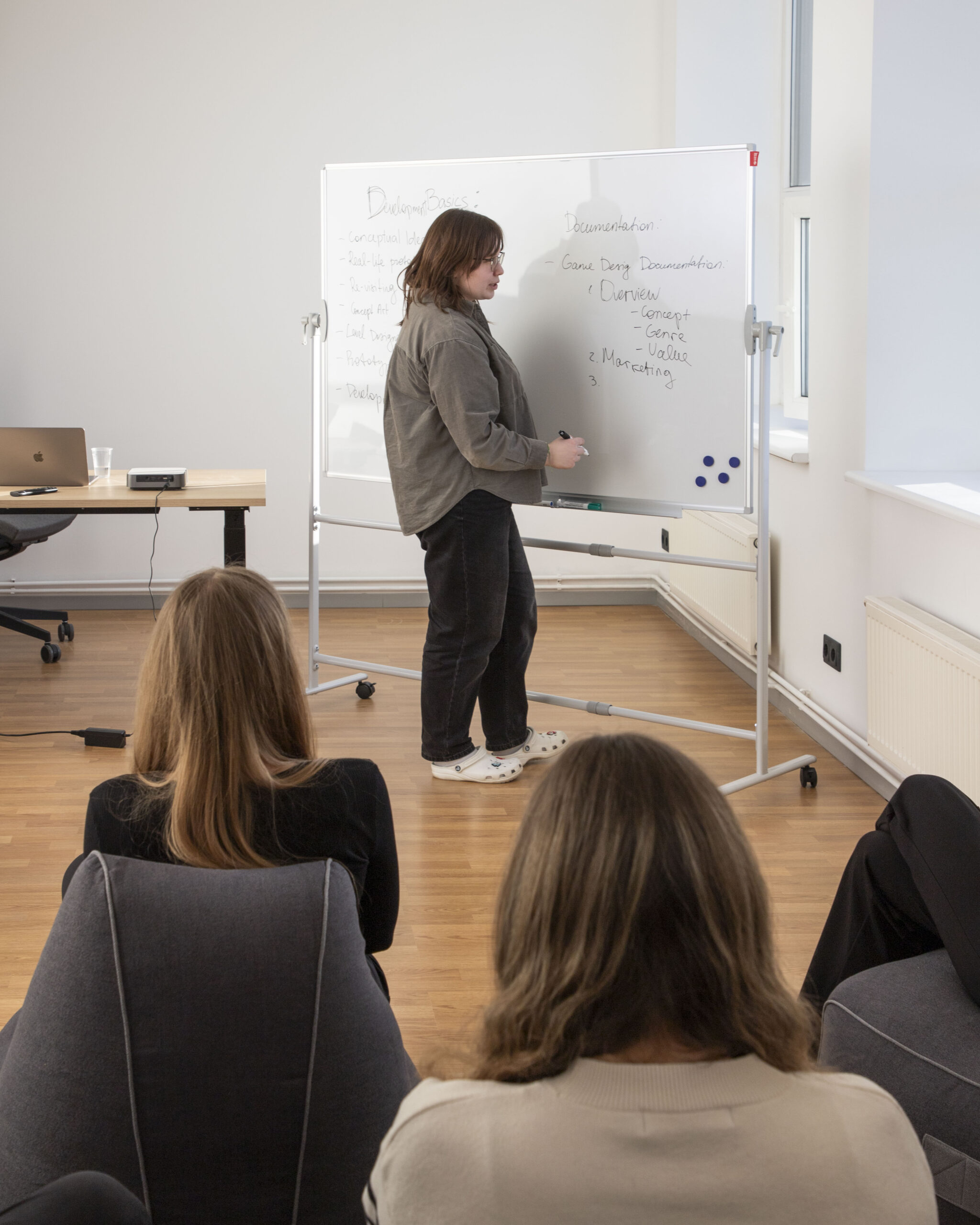Developing virtual reality games for students with prior knowledge is suitable for young people aged 13-19 who already have experience in game development, programming or 2/3D modelling.
About the classes:
- Duration: 90 minutes. Each session consists of a lecture and a practical part where participants work on their own virtual reality projects.
- Group size: maximum 8 participants to ensure individual attention and support for each student.
- Every Saturday, groups work on a joint project development At the end of the training, each group will present their project in an exhibition and receive a work evaluation.
- Technology and equipment: our school is equipped with powerful gaming computers and the latest generation of Oculus Quest 3 Each student has a 10m2 space to move around safely and fully in the virtual reality environment. Computer monitors are freely adjustable and workstations are equipped with ergonomic chairs to ensure a comfortable working environment for every child.
Curriculum: The curriculum focuses on using the AGILE methodology to learn how to develop and manage game projects. Learn how to effectively plan, organise and implement your own play projects. We will focus on different systems in the Unity Engine virtual reality game development software, so that students can learn how to develop large and detailed game projects. This course is especially suitable for those who want to pursue their education in games or virtual reality projects after graduation.
Curriculum content:
- Virtual reality games and how they work;
- Game design basics: the principles and technical knowledge needed to design games in virtual reality;
- Levels and level design in games: how to design levels to be both exciting and challenging;
- Narrative design: the importance of an emotional and immersive story when designing games in virtual reality;
- System design: the design of game components and mechanisms and its importance;
- Sound design: an introduction to creating and incorporating different sounds into the play process;
- User experience design: how to ensure that the game you create is easy to understand, convenient and intuitive for the user;
- The basics of in-game marketing and getting your game on the Meta Quest



